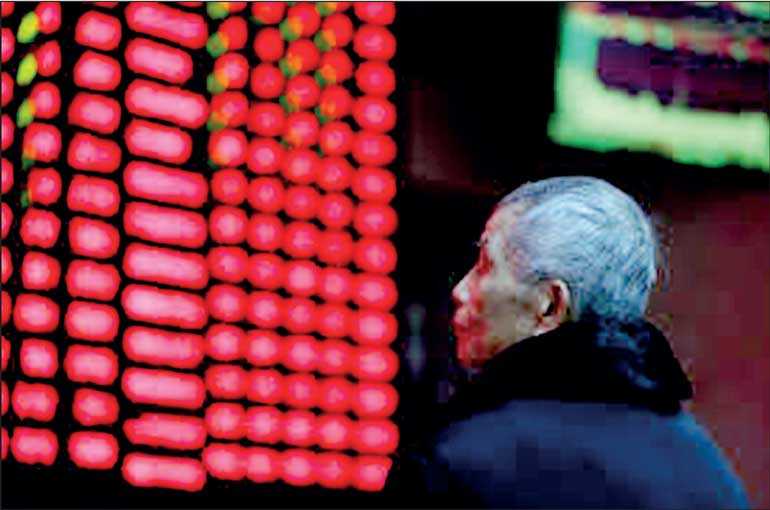Monday Feb 23, 2026
Monday Feb 23, 2026
Friday, 7 June 2019 00:00 - - {{hitsCtrl.values.hits}}

SYDNEY (Reuters): Share markets were in a muted mood on Thursday as fears the US trade tussle with Mexico would further depress global growth warred with wagers central banks would have to respond with fresh stimulus.
MSCI’s broadest index of Asia-Pacific shares outside Japan was off 0.2% in very thin trade. Japan’s Nikkei ended all but flat and Shanghai blue chips eased 0.6%.
E-Mini futures for the S&P 500 dipped 0.1%, while FTSE futures added 0.03%.
Eyes were on the European auto sector for reaction to Fiat Chrysler’s decision to pull its $35 billion merger offer for Renault.
Sentiment had soured early in Asia after a meeting between US and Mexican officials ended with few signs of progress.
“Immigration discussions at the White House with representatives of Mexico have ended for the day. Progress is being made, but not nearly enough!” Trump said in a tweet on Wednesday evening. Talks will resume on Thursday.
Mexican markets were dealt an additional blow when ratings agency Fitch downgraded the country’s credit rating to BBB, while Moody’s changed its outlook to negative from stable.
All of this saw the dollar jump 0.9% against a beleaguered Mexican peso.
“We think the markets discount President Trump’s threats on both trade and immigration issues at their own peril,” said Libby Cantrill, head of public policy at PIMCO.
“We estimate the recently implemented higher tariffs on Chinese products will cost the US economy around 0.3 percentage points of GDP, and the Mexican tariff hikes, if they reach the full 25%, could double our estimate.”
Wall Street had still ended Wednesday in the black, but only because investors reckoned the Federal Reserve would have to cut rates as insurance against a slowdown. Such is the lust for stimulus that a dismal reading on US private-sector jobs was greeted with cheer as it seemed to add to the case for an early easing.
Two-year Treasury yields struck their lowest since December 2017 in response, while futures have priced in around 68 basis points of easing by December.
The Dow ended Wednesday up 0.82%, while the S&P 500 gained 0.82% and the Nasdaq 0.64%.
In currency markets, the safe-haven yen was again in demand and nudged the dollar down 0.3% to 108.14. The dollar fared better against a basket of currencies to trade at 97.244, having bounced from a seven-week low overnight.
The euro eased back to $1.1228 after briefly stretching as high as $1.1306 on Wednesday.
Its near-term fortunes lie with the European Central Bank, which is expected to attempt to give an ailing economy a fillip at a policy meeting later on Thursday.
At a minimum, the central bank will likely offer to pay banks if they borrow cash from it and lend it out to households and firms.
“We expect the ECB to turn more dovish and push the euro lower,” said CBA FX analyst Joseph Capurso.
“We expect the ECB to change their forward guidance on interest rates and to trim their macroeconomic projections and modify their forward interest rate guidance because of low inflation and heightened uncertainty about global trade.” In commodity markets, all the chatter of rate cuts helped lift gold to 15-week highs and the precious metal was last trading at $1,332.71 per ounce.
Oil prices flatlined after diving overnight when the Energy Information Administration (EIA) reported the largest build in crude oil and oil product inventories since 1990.
US crude was last up 2 cents at $51.70 a barrel having hit its lowest since January, while Brent crude futures inched up 3 cents to $60.66.